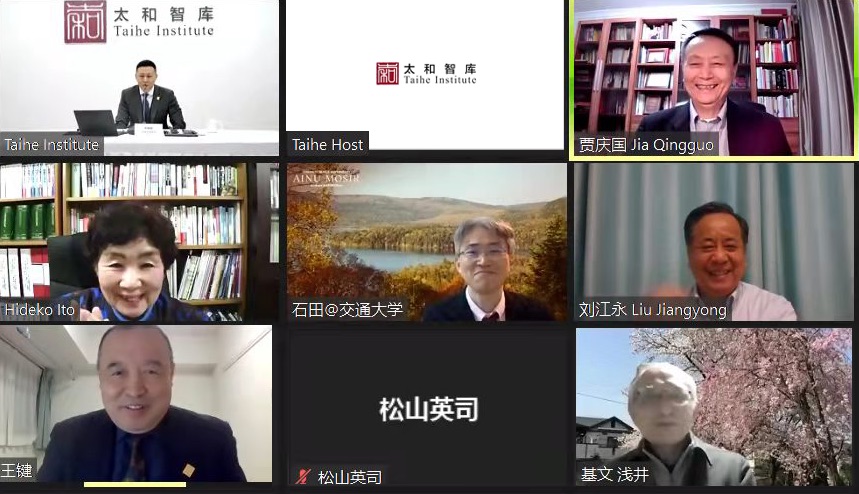The Russia-Ukraine conflict has not only triggered international geopolitical turmoil, but its derivative impact has spread around the world. Recently, Taihe Institute invited both Chinese and Japanese experts to participate in the online seminar - Implications of the Russia-Ukraine Conflict for Peace in East Asia. Discussion centred on four topics:
1. Effects of the Russia-Ukraine Conflict on the Situation in East Asia;
2. Evolving Public Opinion in Japan after the Outbreak of the Russia-Ukraine Conflict;
3. China-Japan-U.S. Trilateral Relations and the Situation in East Asia; and
4. Suggestions for China-Japan Relations and the Maintenance of Peace in East Asia.
Motofumi Asai, former director of the China and Mongolia division of Japan’s Foreign Ministry and former Director of Hiroshima Peace Institute at Hiroshima City University, pointed out that the U.S. and NATO are to blame for the crisis in Ukraine, and that its root cause is the irrational expansion of NATO towards Eastern Europe. The Russia-Ukraine conflict could have been avoided if only the U.S. and NATO had accepted Russia’s security proposals and guaranteed that Ukraine would remain as a strategic buffer zone for Russia. In addition, the ongoing conflict shows that Western media continue to exercise “overwhelming dominance” over international public opinion, and China faces the daunting task of breaking such dominance.
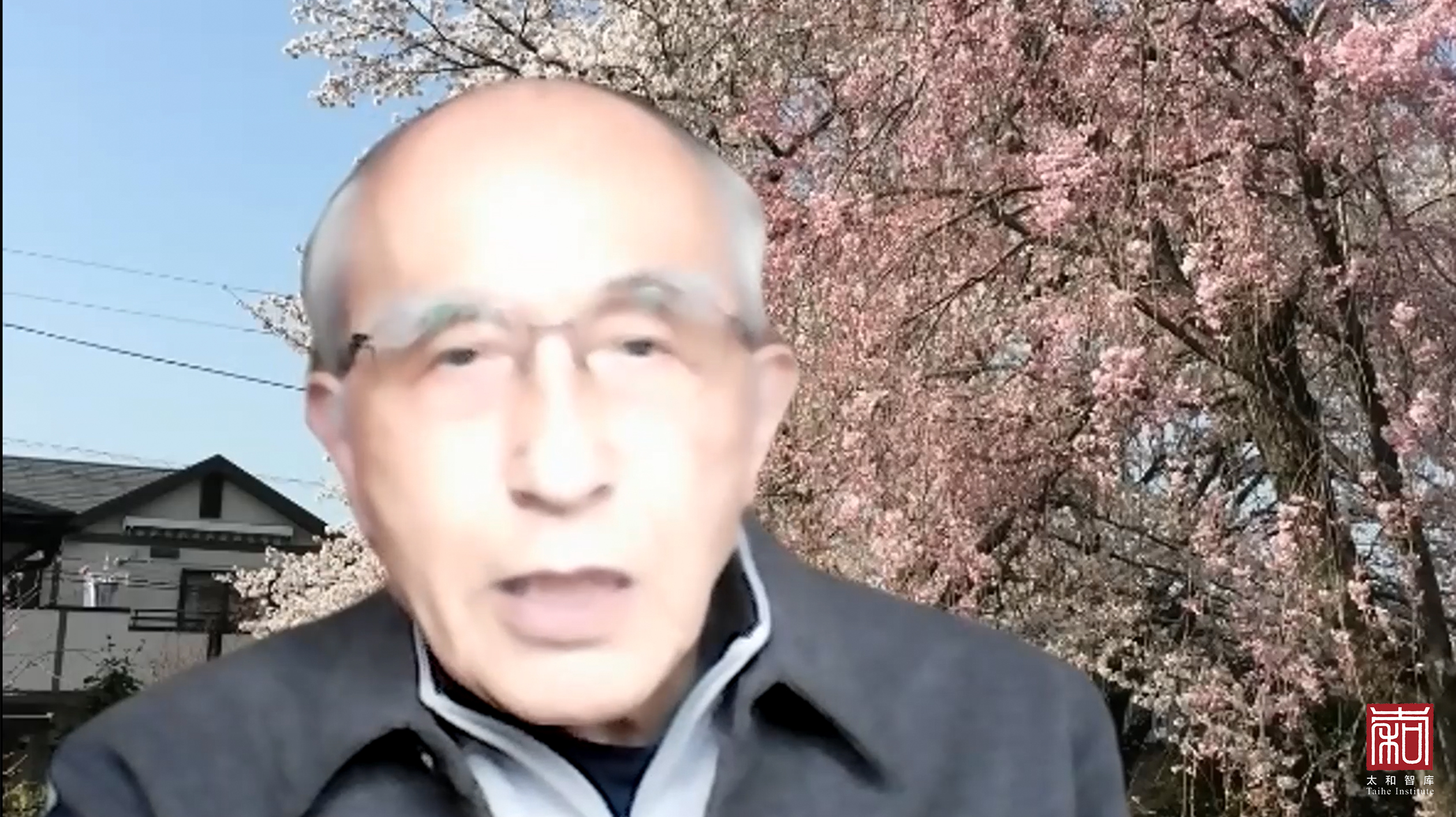
Hideko Ito, a former member of the House of Representatives of Japan and well-known lawyer, noted that the Russia-Ukraine conflict has sparked widespread discussions in Japan, and that the voice of Japanese conservatives calling for the amendment of Article 9 of the Constitution has increased. There is also a view that when an “emergency situation” arises in the Taiwan Strait, Japan should engage in “military confrontation” against China justified under the Japan-US alliance. Regarding these aforementioned voices, Ito suggested that we should strongly oppose such conduct and focus on sober-minded diplomatic efforts. Japan’s goal is not to “strengthen self-defense” but to strengthen “self-defense under the jurisdiction of the Constitution,” and to firmly oppose any strengthening of the Japan-US military alliance due to the hostile US policy toward China.
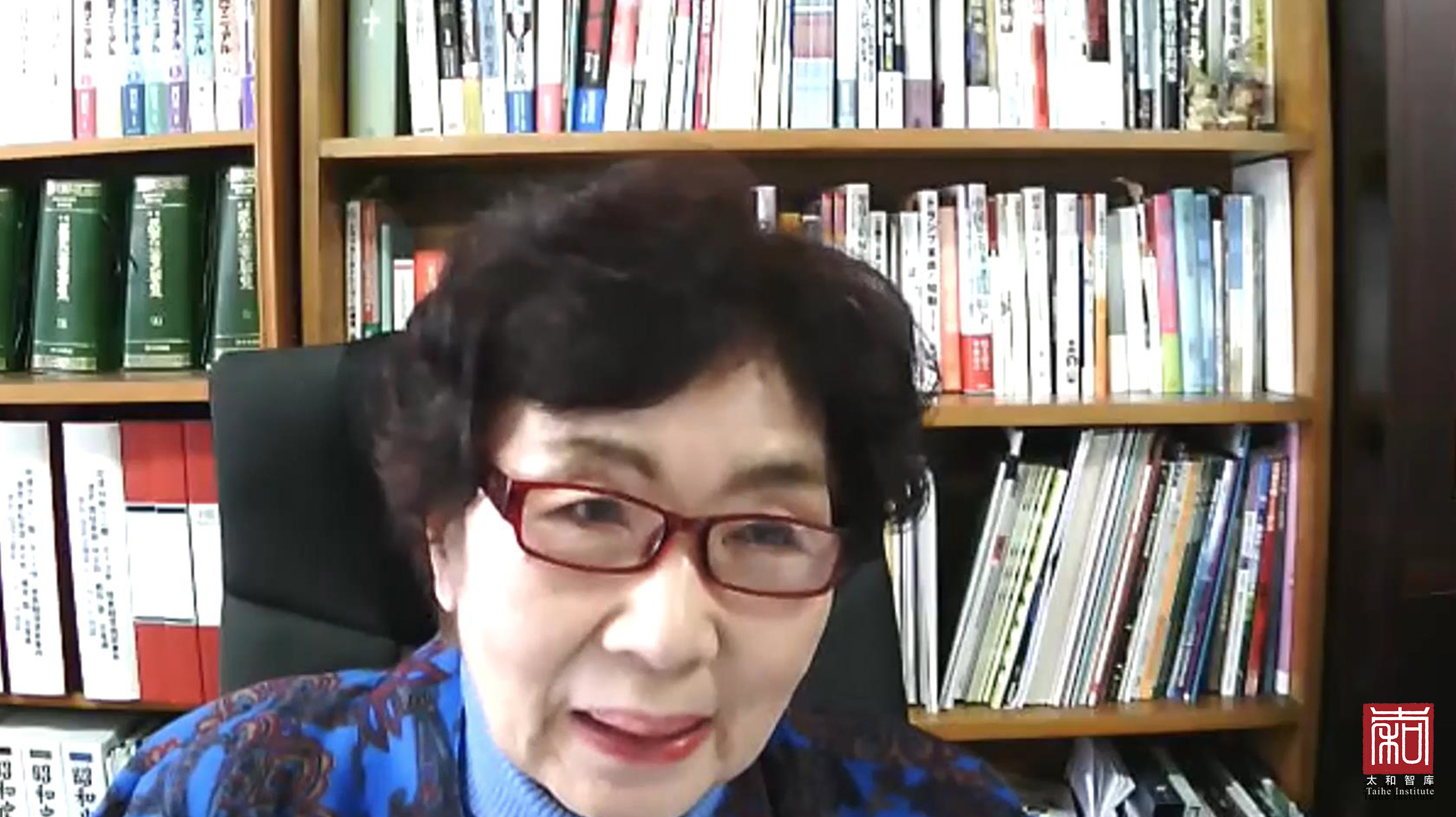
Liu Jiangyong, professor at the Institute of International Studies of Tsinghua University, argued that the conflict between Russia and Ukraine could have been averted, but that the final outbreak was also inevitable. Ukraine is not a chess player in this conflict, but a pawn or “an abandoned pawn.” The Russia-Ukraine conflict has the characteristics of a geopolitical proxy war, and is also a “hybrid war” involving military, diplomacy, public opinion, economy, finance, technology, psychology and other fields. The Russia-Ukraine conflict has two implications for East Asia’s peace and security: first, policymakers in various countries should abandon “realist power politics” and outdated thinking based on traditional geo-strategy; second, East Asia should prevent security crises and catastrophes brought about by “violent multilateralism,” and establish a new security concept of commonality, comprehensiveness, cooperation and sustainability.

Ukeru Magosaki, former head of the Intelligence and Analysis Bureau of Ministry of Foreign Affairs of Japan and director of East Asian Community Institute, pointed out that Japan is currently caught in the rhetoric of advocating comprehensive condemnation and sanctions against Russia, and that anyone who expresses a different opinion will be suppressed. But In fact, the eastward expansion of NATO is a wrong move. At the same time, Russia is suffering under various sanctions, which are not limited to the Russian government, but also involve the Russian public. This is also a wrong approach. The US government did not accept the warnings by George Kennan, Henry Kissinger, Jack Matlock and others, nor did it follow their suggestions on pursuing stability. Instead, the U.S. chose to confront Russia “head-on” and engaged in a “New Cold War” against Russia. The “New Cold War” is more unpredictable than the old one.
Jia Qingguo, member of the Foreign Affairs Committee of the 13th National Committee of the Chinese People’s Political Consultative Conference, and former dean of the School of International Studies at Peking University, pointed out that, more than ever, this is an important time for China-U.S. relations, and for China and the U.S. to respect each other’s core interests. East Asian countries should not choose sides between China and the U.S., but should make independent judgments based on the merits of specific issues. They need to support China and the U.S. in managing their differences and avoiding confrontation, and to strengthen cooperation with China on issues of common interest. 2022 marks the 50th anniversary of the normalization of diplomatic relations between China and Japan. Both countries should reflect on the past, and contribute to their shared future, as well as the peace, stability and prosperity of East Asia. Regarding the conflict between Russia and Ukraine, China and Japan, as two major countries in East Asia, should exchange more views, coordinate policies, strengthen cooperation, and jointly deal with challenges.
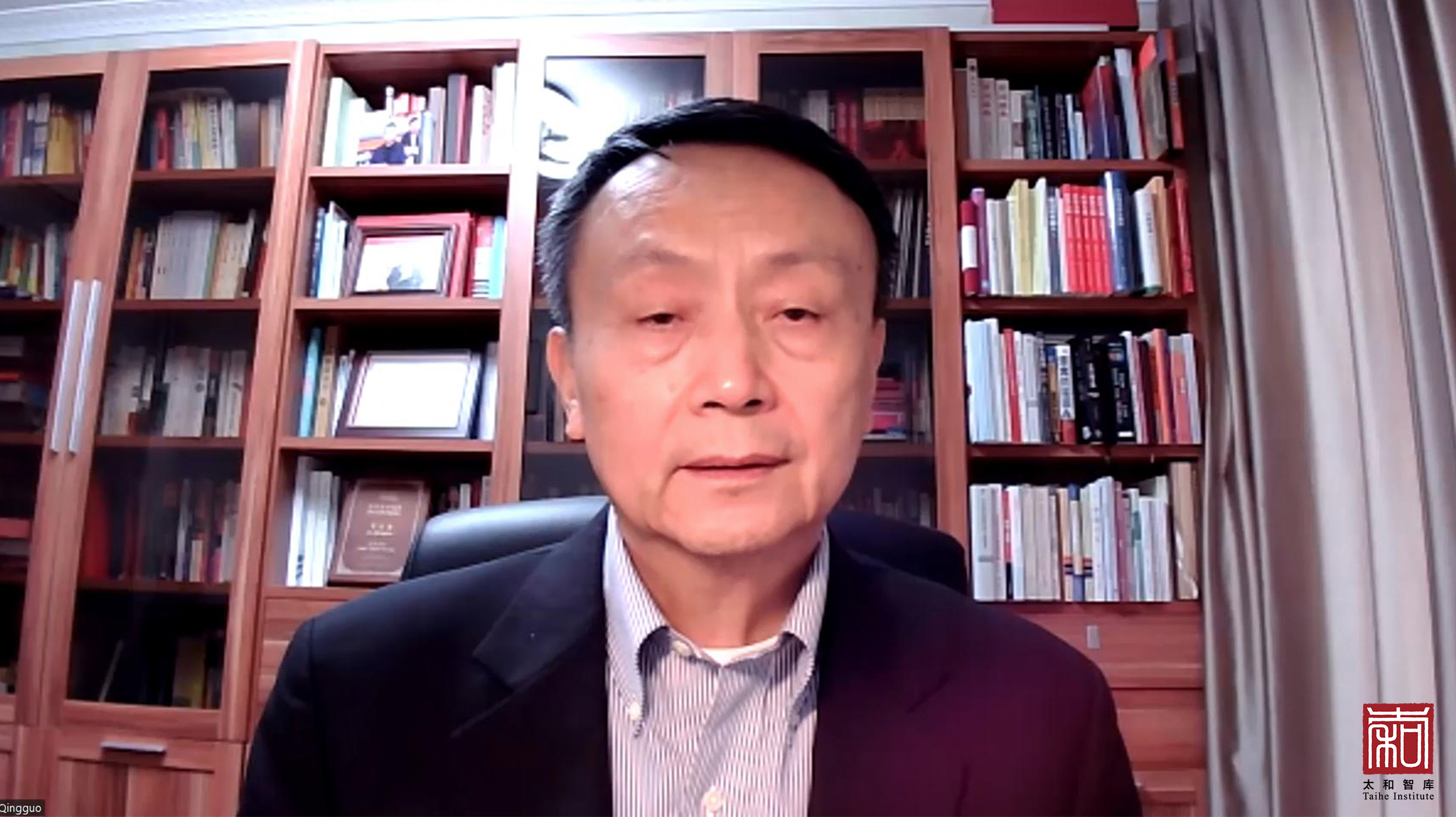
Ryuji Ishida, researcher at the International Peace Research Institute of Meiji Gakuin University, and associate researcher at the Research Institute of War Trial and World Peace at Shanghai Jiao Tong University, argued that in Japan, “peace,” “dialogue,” and “renunciation of force” have different meanings for those who think Japan is “threatened” and for peace activists. However, there is currently no vocabulary and conceptual system capable of expressing such content. Most narratives and concepts are now Western-centric. “An international order based on the UN Charter,” which China has been seeking, is also a Western-derived framework as well as concept. Both China and Japan should try to use their own languages and concepts to interpret peaceful practices and China-Japan relations.
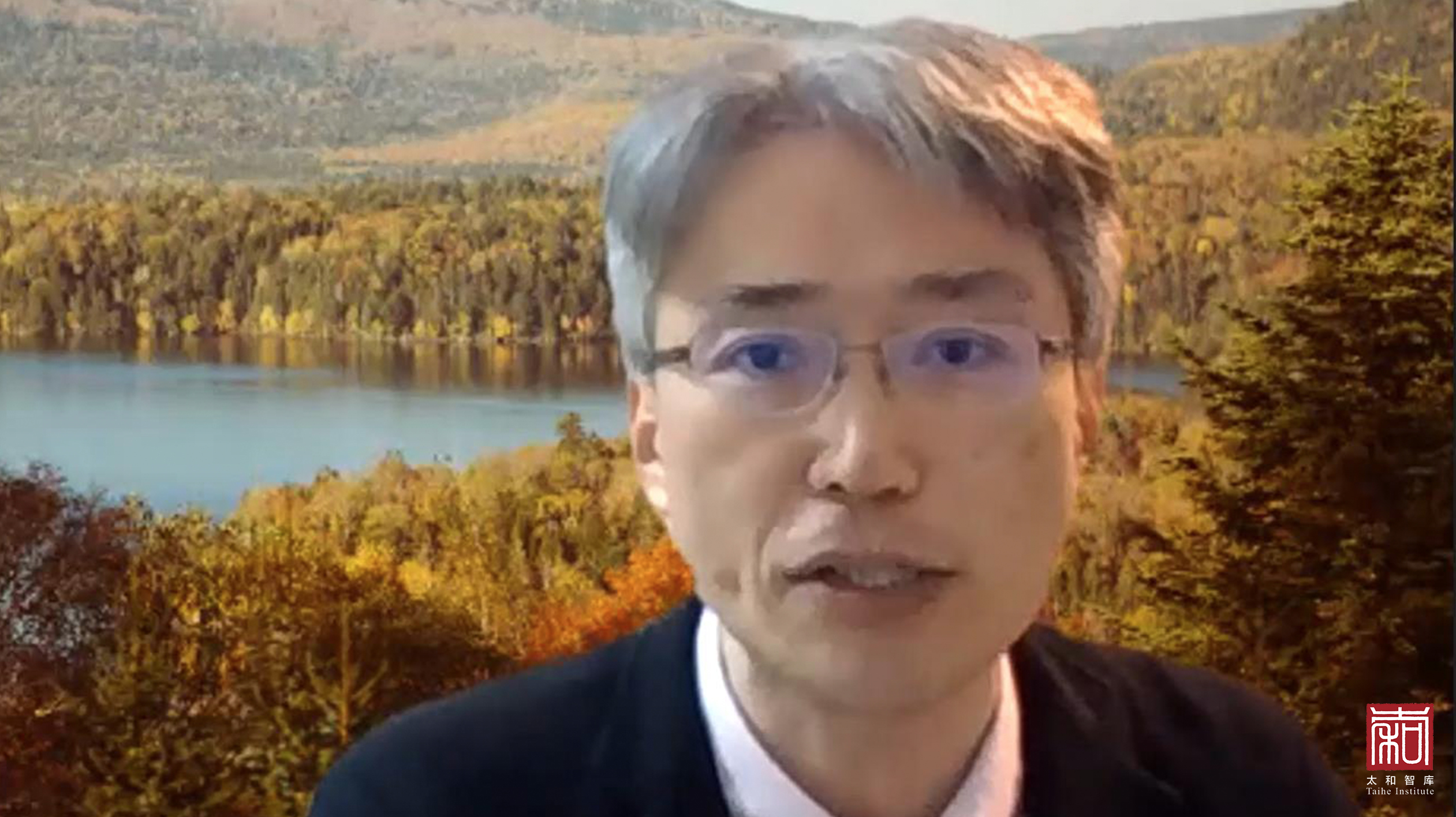
In the second half of the discussion, Ishida pointed out that China has always upheld the concept of peace when handling international issues. In terms of China-Japan relations, such a concept is mainly reflected in issues such as, the amnesty of war criminals, the waiver of war reparations, and the “One-China” policy. But Japan and the U.S. have abandoned the above-mentioned principles of peace and international treaties, and even tried to change the status quo with their strength, clamoring for military intervention over the Taiwan issue. Ishida believes that Japan is in danger of repeating the mistakes of Ukraine and becoming a strategic “pawn” of the U.S. He has called on Japan to regain its original intention, that is the normalization of diplomatic relations between China and Japan.
Wang Jian, researcher at the Chinese Academy of Social Sciences and senior fellow of Taihe Institute, argued that the outcome of the ongoing conflict between Ukraine and Russia is still difficult to predict. However, it can be basically determined that the continuing or ending of the conflict will not change the friendly relations between China and Russia, and between China and Ukraine. Wang noted that with the escalation of the crisis in Ukraine, there are also concerns about the situation in the Taiwan region. A recent poll in Taiwan showed that 51% of the people believed that Biden’s actions on the Ukraine crisis were irresponsible, and realized that the United States would not “protect Taiwan” in the event of a conflict between the two sides across the Taiwan Strait. What must be stressed here is that the Taiwan issue is fundamentally different from the Ukrainian issue. The Taiwan issue is entirely China’s internal affair, and no outside interference is allowed. The Democratic Progressive Party (DPP) authorities cannot “protect Taiwan,” will eventually “harm Taiwan,” and will push Taiwan further into the abyss of doom by their blind “resisting China” policy.
—————————————————————
ON TIMES WE FOCUS.
Should you have any questions, please contact us at public@taiheglobal.org
